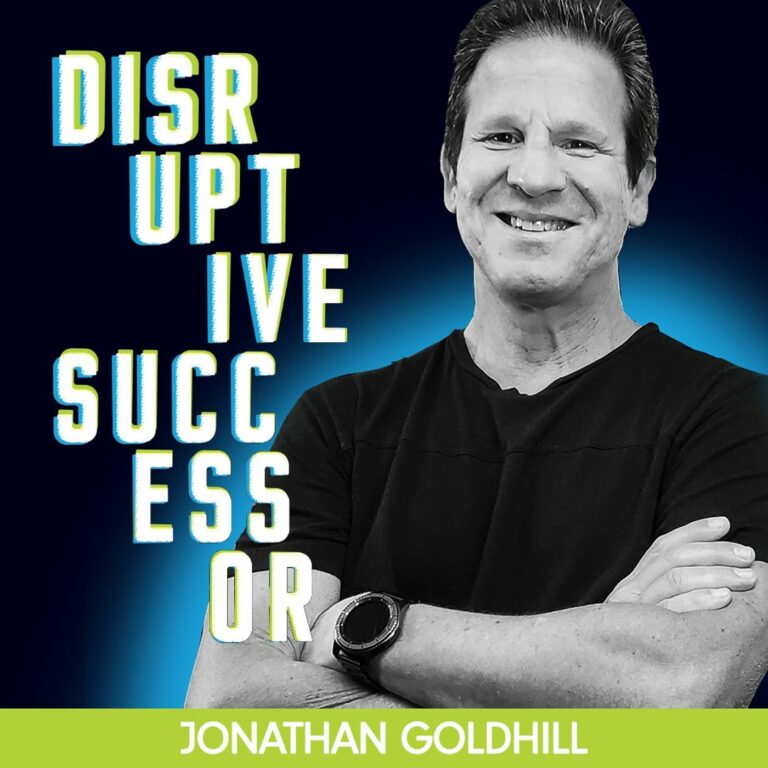Podcast: Disruptive Successor Show

The Disruptive Successor Show is a podcast for next-generation leaders in family businesses and entrepreneurs who want to disrupt the status quo to grow their business and take it to the next level.
We all know that what got us here isn’t going to get us there.
If you are taking control over your family’s business or trying to get your business to the next level, you will need inspiration, advice and resources to help you create a massive impact.
Listeners of my show include not only the millennial or Gen Z but also the Baby Boomer and Gen Y. My listeners tend to be involved in these industries: business services, construction, design-build-maintain landscape contracting, food manufacturing, property management, real estate, and technology.
And are interested in issues like business coaching, branding, communication, difficult conversations, disruption, employee ownership, exit planning, financial management, leadership, innovation, intergenerational transfer, marketing, multi-generational family businesses, business operations, process documentation, security, selling, storytelling, succession, visioning, wealth management,
My guests are entrepreneurs, family business advisors, multi-generational and Gen 2 family business leaders, heads of university family business programs, consultants, coaches and firms that serve those who are growth businesses.
Clients of my show typically are running businesses with 10 to 200 employees and $1M to $20M in revenues.
Their concerns include: scaling up, exit planning, succession, leadership development, disruption, business planning, finances, growth planning, transferring generational wealth, transferring control, ownership issues, and more.
The benefits listeners receive are introductions to experts and advisors around the issues of growing and exiting a business, whether it’s a family business or entrepreneurial venture. They get a feel for the challenges other business owners and leaders face and how they overcame them. They will hear stories from people and how they came to do their work and why.
My shows feature handpicked guests who engage with me in casual conversations lasting between 30 to 40 minutes. You can expect to be entertained, engaged and may even get takeaways like business tools or ideas for implementation in your business.
I’ve led entrepreneurial adventures in art, clothing, a holistic health lifestyle magazine and trade show, shoe manufacturing. I’ve also led several non-profit organizations. I earned an MBA from the University of Southern California in Entrepreneurship.
I’ve been advising, coaching and consulting family-owned, family-run and entrepreneur-led businesses since 1989. My love for entrepreneurship follows the closure of my family’s sizeable multi-generational clothing manufacturing company after eight decades of operation because there were no successors.
After uncovering the code to scale up a family-run business – a playbook and a disruptive successor – I wrote a book called Disruptive Successor: A Guide To Driving Growth in Your Family Business.
My podcast is my effort to bring interested people into the conversation to benefit disruptive successors.
Doug Baumoel is the founder of Continuity Family Business Consulting and a renowned expert in managing conflict within family enterprises. With over 25 years of experience, Doug has developed a unique systems approach to resolving deep-seated family disputes. He is the co-author of the influential book “Deconstructing Conflict: Understanding Family Business, Shared Wealth and Power,” which he wrote with Blair Trippe. Doug’s work focuses on addressing identity-based conflicts and historical impasses, providing families with the tools and strategies needed for long-term harmony and business success.
SHOW SUMMARY
In this episode of the Disruptive Successor podcast, host Jonathan Goldhill welcomes Doug Baumoel, founder of Continuity Family Business Consulting. Doug discusses his groundbreaking work in managing conflict within family businesses, drawing on over 25 years of experience and his unique systems approach. He delves into the origins of his conflict equation, the importance of understanding identity-based conflicts, and effective methods for resolving deep-seated family disputes. Along the way, Doug shares insights from his book, “Deconstructing Conflict: Understanding Family Business, Shared Wealth and Power,” co-authored with Blair Trippe.
KEY TAKEAWAYS
- Understanding Identity-Based Conflict: Conflict in family businesses often goes beyond financial disputes and touches on deep-seated identity issues. Recognizing this can help in addressing the core of the conflict.
- The Conflict Equation: Doug’s methodology breaks down conflicts into opposing goals, incompatible values, and historical impasses, each requiring different approaches for resolution.
- Forgiveness and Releasing Blame: Genuine conflict resolution often involves a process of forgiveness and releasing blame, which can be structured and methodical.
- Historical Impasses: Addressing past grievances and historical conflicts within the family is crucial for long-term harmony and business success.
- Empathy and Understanding: Building empathy and understanding between family members can lead to better accommodation of differing values and smoother conflict resolution.
QUOTES
- “Conflict in Family Enterprise has more in common with religious, political, and ethnic conflicts than with civil disputes.”
- “When your identity is threatened, your rational thinking gets hijacked, and you behave emotionally.”
- “Forgiveness is not a simple act; it’s a process that requires understanding, empathy, and sometimes a structured approach.”
Connect and learn more aboutDoug Baumoel.
LinkedIn: https://www.linkedin.com/in/dougbaumoel/
If you enjoyed today’s episode, please subscribe, review, and share with a friend who would benefit from the message. If you’re interested in picking up a copy of Jonathan Goldhill’s book, Disruptive Successor, go to the website at www.DisruptiveSuccessor.com









































